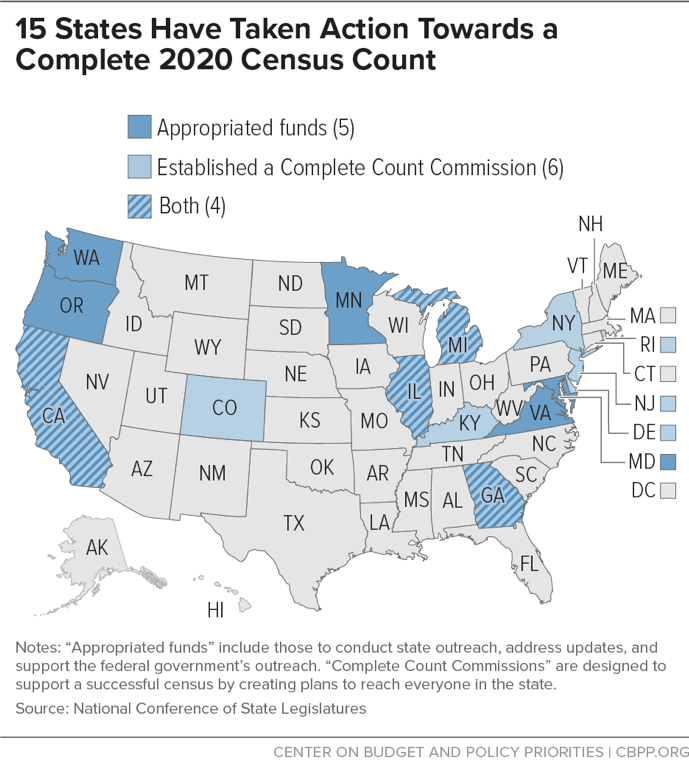BEYOND THE NUMBERS
The federal government is responsible for conducting a fair and accurate census every ten years, but that’s in jeopardy for 2020: inadequate and delayed funding and the Commerce Secretary’s last-minute decision to add an untested citizenship question will both likely reduce participation. Therefore, states can and should take steps now to help ensure a successful count — that is, one that counts all communities equally well.
States can allocate funds to supplement the federal government’s efforts and form “Complete Count Commissions” dedicated to reaching everyone living within their borders. States have much at stake in a complete 2020 census count: in 2015, the federal government distributed about $600 billion to states and the District of Columbia through 16 census-guided programs and projects including Medicaid, highway planning and construction, food assistance, and foster care, among others.
Many communities and population groups are already at risk of not being fully counted, including young children, people in rural areas, people of color, those who live in poverty, and immigrants — in part due to geographic isolation, limited language assistance, housing instability, anti-immigrant rhetoric by federal officials that could prompt some immigrants to fear participating in the count, and other barriers. Such an undercount could further reinforce barriers to opportunity by denying communities accurate political representation that’s determined by population numbers; local, state, and federal funds that they might otherwise receive; and private-sector investment that’s informed by population changes.
To make matters worse, Congress has underfunded census planning and preparations for most of the last decade, which forced the Census Bureau to cancel key tests and left it struggling to catch up in the pivotal years before 2020. And Commerce Secretary Wilbur Ross directed the Census Bureau to place an untested citizenship question on the census form in March 2018, after census preparations were well underway. That will likely have a chilling effect on immigrant participation in 2020 in all states, with the greatest impact in states with the largest immigrant communities. The Secretary’s authority to add this question has been challenged in court and is currently under review.
Given these challenges to an accurate census, states should:
- Allocate funding to conduct outreach within their borders and provide other support to supplement the Census Bureau’s outreach and promotion activities, especially in targeting hard-to-count populations. Nine states have allocated such funding to date (see map), and two other states have passed resolutions to support a complete census count without dedicated funding or staff.
- Establish a Complete Count Commission. These commissions help amplify the importance of census participation to their state by creating plans to promote census participation in all areas, identifying “trusted messengers” to conduct community outreach, creating and translating educational materials to supplement the Census Bureau’s own communications campaigns, and taking other steps. All but two states, as well as the District of Columbia and Puerto Rico, have either agreed to establish a commission or are considering it. Ten states have established these commissions already, with four of them also allocating funds for outreach.

